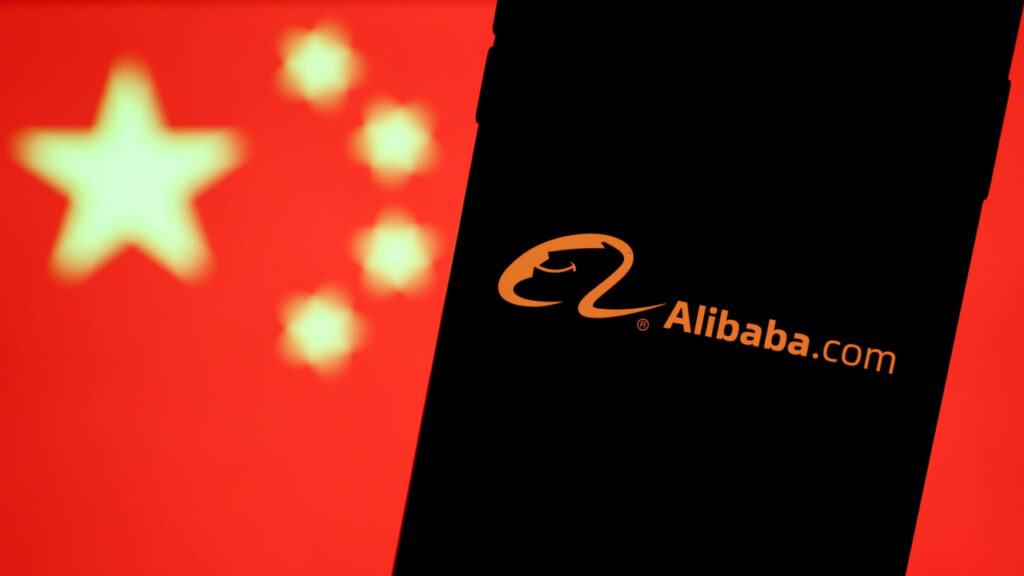Technology
Chinese Tech Giants’ Lackluster Results Amid Economic Recovery
Chinese tech giants, the country’s biggest technology companies, presented a mixed outlook on the recovery of the world’s second-largest economy in the first quarter. While growth activities targeting businesses accelerated, consumer spending remained weak, underscoring China’s lackluster post-pandemic economic revival.
On Thursday, e-commerce behemoth Alibaba reported a modest 2% increase in revenue compared to the previous year, falling short of analysts’ expectations and highlighting the sluggish economic recovery in China. Alibaba’s shares experienced a 4% decline during midday New York trading.
The revenue growth was primarily driven by segments such as international e-commerce, local consumer services, and logistics. However, Alibaba’s core domestic e-commerce business experienced a 3% year-over-year decline in sales.
To enhance organizational efficiency, Alibaba announced its largest reorganization plan to date in March. The plan involved dividing the expansive e-commerce empire into six distinct groups. Recently, Alibaba released the timeline for several spinoffs and shared details regarding the board of directors and CEOs of these six businesses.
Get Wall Street Journal 2-Year Print Subscription Take for $480
Likewise, Alibaba’s competitor JD.com reported only marginal revenue growth in the first quarter compared to the previous year. The company attributed the underwhelming performance of its retail business to persistently weak consumer sentiment. Sales of high-value items, including household appliances, remained sluggish in comparison to other consumer products.
Although consumer spending began to recover after Beijing lifted widespread lockdowns and pandemic control measures in December, it has not fully rebounded to pre-pandemic levels. Alibaba’s CEO, Daniel Zhang, noted the gradual recovery in China’s consumption but highlighted the need for further momentum in consumer confidence and spending power. The intense competition among various consumption platforms has prompted companies to strive for capturing incremental demands through value-for-money products and services.
However, Chinese tech giants Tencent and Baidu witnessed a more significant upturn in the first quarter. These companies, heavily reliant on digital advertising, posted double-digit revenue growth.
Tencent experienced its fastest sales growth in six consecutive quarters, with a 17% increase in revenue from online advertising. James Mitchell, Tencent’s chief strategy officer, emphasized that while consumer demand in sectors like automobiles and electronics remained unpredictable, advertisers were keen on investing more in ads to drive sales.
Get Wall Street Journal Newspaper for $318
Baidu, on the other hand, reported a positive impact on its online marketing business from China’s overall economic improvement. After four consecutive quarters of decline in 2022, online advertising revenue returned to growth.
According to China’s National Bureau of Statistics, retail sales, a proxy for domestic consumption, increased by 5.8% in the first quarter compared to the previous year. However, the growth in e-commerce sales of physical goods slowed to 7.3% year-on-year, lower than the 13% surge in the fourth quarter of 2022.
Chinese tech giants are currently undergoing a transformation in the sector after a decade of rapid growth. They face challenges such as a more stringent regulatory environment, increased competition, and a struggling economy.
In response, these companies have been focused on cost-cutting and streamlining their operations to improve profitability. Alibaba plans to fully spin off its cloud business and achieve a public listing within the next 12 months. The company’s board of directors has approved the pursuit of public listings for its new retail business Freshippo, logistics arm Cainiao, and international business within the next six to 18 months. The listings’ specific locations were not disclosed.
JD.com is also undergoing a reorganization to create a flatter hierarchy and a more agile structure, as announced by its now-retired CEO, Xu Lei, during last week’s earnings call.

